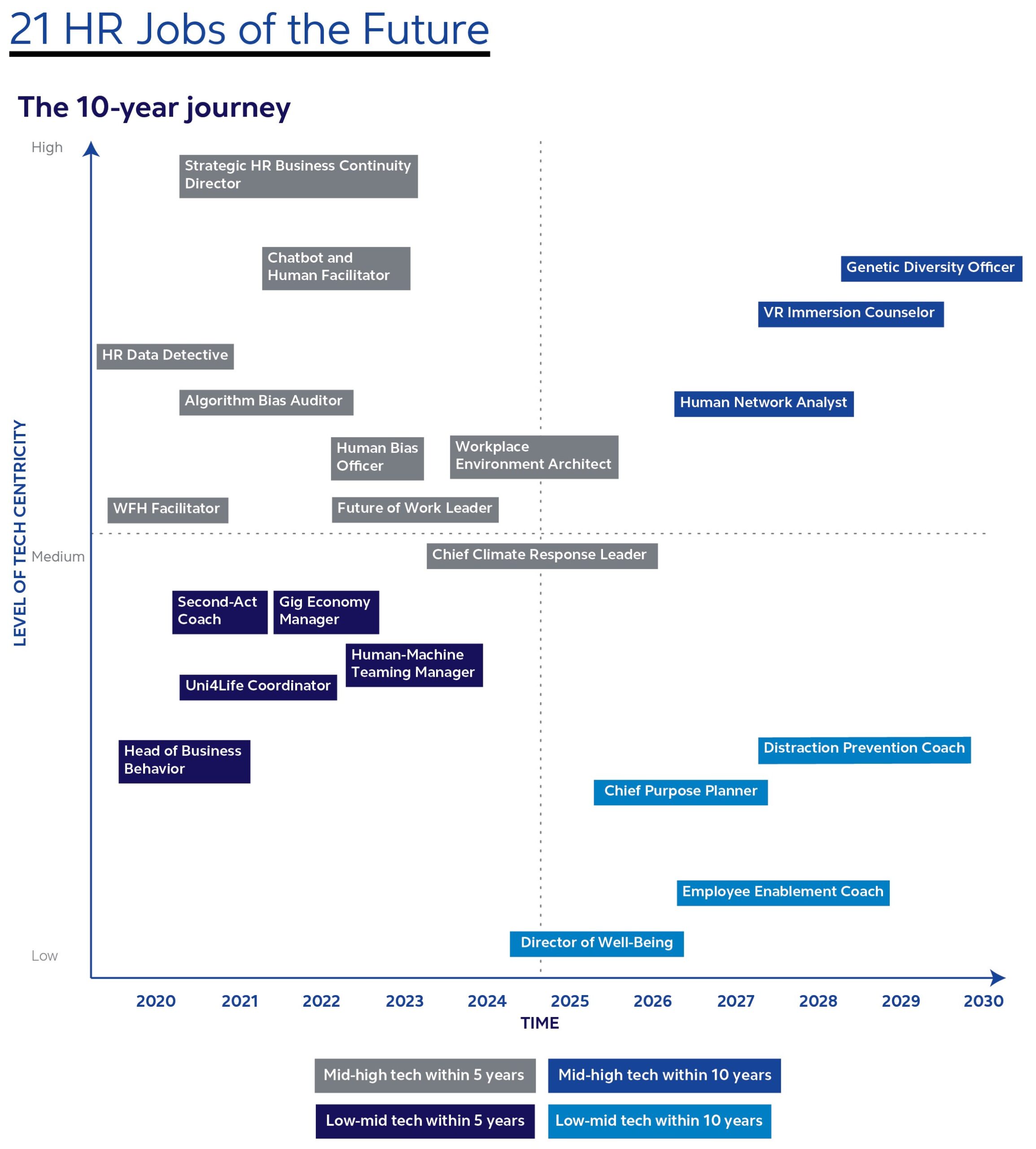Do You Have a Distraction Prevention Coach? Your HR Department Is About to Be Transformed

Being distracted at work entails not only a loss of your productivity, but it elevates your stress levels.
Photo: Getty Images
Diversity initiatives and technology are sweeping through companies, transforming the meaning of HR and the roles within the HR department.
BRINK spoke to Jeanne Meister of Executive Networks about the big changes that are happening in the HR industry.
MEISTER: The first big event that changed HR practices has been the pandemic, which accelerated all the macro-trends around the future of work that HR professionals have been talking about in the last couple of years, such as remote working, employee well-being, the future skills needed to thrive in the workplace, and so forth.
The second game-changer is the digital transformation of HR — nearly every function in an organization has gone through a digital transformation, and HR is now being transformed so that its services are seamlessly accessible by employees.
A Consumer-Grade HR Experience
But the biggest recent shift by far in HR is the focus on employee experience, which really means creating a compelling experience for prospective employees and current employees.
Companies are now expected to offer a consumer-grade employee experience, one that mirrors their best customer experiences. So we have companies that are creating new positions, like the Director of Employee Experience, that is focused on bringing learning, knowledge and resources to do one’s job into the flow of working.
A growing number of companies are also focused on providing a whole suite of services for improving an employee’s experience, a prime example of this is Microsoft Viva.
Finally, and related to this, is a focus on employees’ well-being and mental health, especially during the last 18 disruptive months with so many employees working virtually. This focus on mental health has been expanded from the individual employee to helping the entire family unit of the employee.
A Distraction Prevention Coach
BRINK: On the subject of employees and their well-being, you’re predicting that HR departments will soon have a role called a Distraction Prevention Coach. What does that mean?
MEISTER: Being distracted at work entails not only a loss of your productivity, but it elevates your stress levels, and so this falls into the bucket of helping employees with their well-being at work.
This is basically helping employees to identify those moments when they are distracted and what they can do about it to stay focused. Because, as we all know, when you get in the flow of anything you’re working on, you’re happier, you’re more productive, and you get your job done faster.
BRINK: One striking thing about these new HR jobs of the future is how many are tech-related, with strange-sounding positions like Chatbot & Human Facilitator and Algorithm Bias Auditor.
MEISTER: I think it’s fair to say that there’s no such thing as technology companies and service companies anymore. Everybody is now a technology company.
Artificial intelligence tools have entered the workplace, but not without the potential for harm and bias. Back in 2019, Future Workplace conducted a survey of 8,370 HR leaders, hiring managers and workers across 10 countries and found that 80% of workers said their employer should ask for permission before using artificial intelligence to gather any data on them.
So I think that some employees are leery of possible data breaches in our personal lives, and hence they are wondering how will companies leverage AI in the workplace to collect data, which data will be collected, how long will the data be kept by the company, what will the company do about it, and will it be transparent?
All of that has led to this job that we identified in the 21 HR Jobs of the Future article, called the Human Bias Officer. That’s somebody who works not so much in HR, but with HR, the legal department and the compliance department to mitigate bias and ensure that the algorithms being used are explainable and transparent and to share what the company is actually doing with all this data.
The growing presence of artificial intelligence in the workplace is requiring companies through their legal and compliance and risk management departments to create these human bias officer jobs or algorithm bias officer positions to make sure that the company is treating their employees fairly through their use of these algorithms.
BRINK: What about the Chatbot and Human Facilitator? What do you envisage for that?
MEISTER: There have been many articles saying there’s going to be a loss of jobs due to automation, but we take a different stance here: that it’s not so much about losing jobs, it’s actually about creating new jobs. And at the heart of these new jobs will be the partnership between humans and machines in the future.
So in the HR department, two of them — the Human/Machine Teaming Manager and the Chatbot Coach — do just that.
The chatbot coach is one example of an HR job of the future and has already been created at DBS Bank in their talent acquisition department. DBS created a chatbot in order to help its recruiting team source candidates for one of its jobs as a relationship wealth manager. It handled the routine tasks of screening candidates and answering frequently asked questions to free up the human recruiters so that they could focus on the more strategic aspects of their job, such as engaging with hiring managers and better understanding the need for the job.
The Chatbot Coach ran the chatbots doing this and was also responsible for auditing the algorithms used to source these new jobs and to make sure that they were still correct. As new questions and issues came up, the coach would train the bot, just as if the bot were an extra person in the talent acquisition department of DBS.
BRINK: So in a sense, HR and tech are starting to merge?
MEISTER: Yes, HR is becoming an important influencer in buying decisions for new technology platforms.
It’s no longer just the chief information officer, because so many of these tech platforms impact the workforce throughout the employee life cycle from talent acquisition, through onboarding, to learning and development, to performance management, even exiting the organization.
Tech is embedded increasingly in the HR function, meaning the HR leaders are key influencers in technology decisions made on an enterprise-wide basis.








